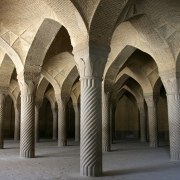Life after life: Mulla Sadra on death and immortality – Muhammad U. Faruque
Abstract:
The purpose of this article is twofold: first, I will reconstruct Mullā Ṣadrā’s complex arguments for the soul’s immortality based on its immaterial nature. Second and finally, I will briefly probe and assess various epistemological and metaphysical objections against Ṣadrā’s immaterialist conception of the soul. Ṣadrā contends that our bodily death marks an awakening to the reality of our con- sciousness on the plane of the imaginal realm (the imaginal world is an isthmus between the sens- ible world and the world of intelligible forms). For Ṣadrā, ‘death’ does not mark an end or discontinuity in human consciousness, rather it signifies an awakening to a new mode of existence in which the soul, having once been the active principle controlling the actions of the physical body, now manifests itself as the passive recipient of the form given to it by its imaginal reality – a reality shaped by the actions it had performed in its earthly, embodied state. Thus, death is seen as the passage of the soul from the sensible to the imaginal world, until the soul unites with the intelligible world (ʿālam al-ʿaql).
Keywords: soul; death; immateriality; Mullā Ṣadrā; imaginal world; materialism









